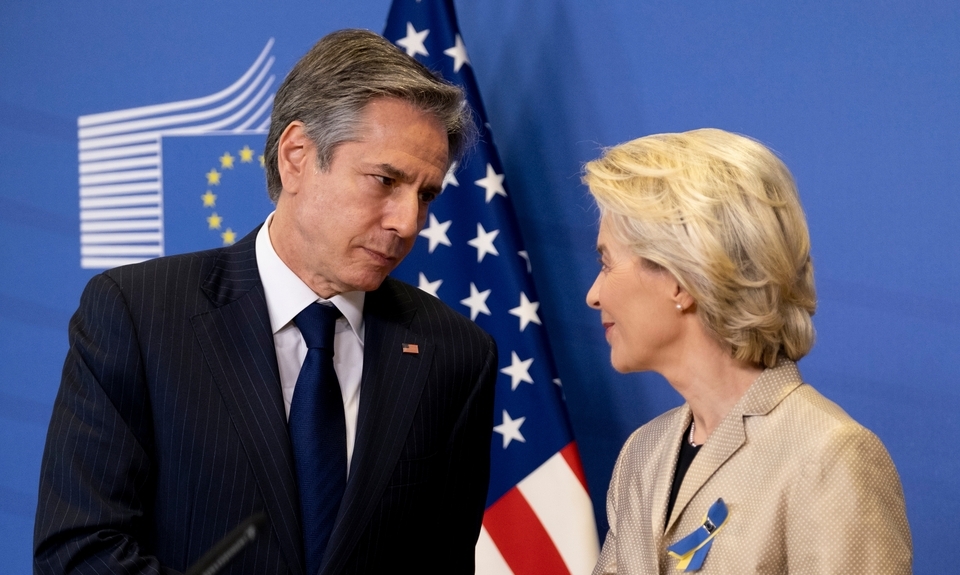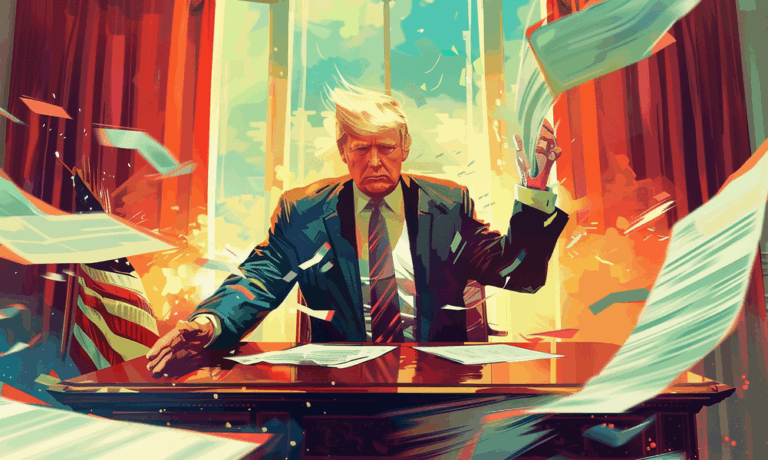Globalisation: the friends of my friends will be my enemies ?

Don’t they say that you should keep your enemies close? Yet, the OECD countries’ approach to “de-risk” from China leads them to favour economic relations “among friends”. However, this new approach to industrial policy could have unforeseen consequences. Could it even lead up to an “industrial war”?
In our essay Les paradoxes de l’économie du savoir (The Paradoxes of the Knowledge Economy, Ed.) we outlined some of the social consequences of the neoliberal globalisation of the 1990s. In this economic system, labour costs are the primary factor influencing industry location decisions. This has led not only to an increase in income inequality to the detriment of the unskilled, but also to the stagnation of middle-class wages in the Global North. This neoliberal globalisation is centred on companies and markets: investment decisions are made by the executives and shareholders of private companies, not by governments.
Today, the volatility of economic variables and the uncertainties arising from geopolitical conflicts are triggering a new cycle of globalisation. A new concept of industrial policy is emerging in the Western world, including the OECD countries. It is based on “de-risking with China” to secure certain supply chains (rare-earth elements or batteries) and develop critical technologies of strategic economic and geopolitical importance. As a result, the strategic orientations that will have the greatest impact on the future are changing.
Correct market imperfections
Following in the footsteps of the United States, countries are adopting a new approach to globalisation, based on the principle that industrial policies are not at odds with the markets, whereas for a long time they were given secondary importance. To measure the scale of the change in climate, on the subject of industrial policy Ursula van der Leyen spoke of a “creative construction”, in other words a radical change.
Today, industrial policies aim to correct market imperfections by taking account of negative externalities. They also, and above all, inform the choices of companies by directing investment towards products and technologies that are crucial for national security or for achieving the net-zero target.
Read also: Cooperation or competition? China’s great divide
In this context, economic security is becoming a major imperative. It is influencing the content of industrial policy and reshaping the way production and trade are organised. According to US Treasury Secretary Janet Yellen, trade “will be among friends who share the same values”. In the United States, the supply chain approach to industrial policy has highlighted the risks weighing on four critical supply chains: semiconductors, batteries, rare-earth minerals, and pharmaceuticals. Hence the CHIPS and Science Act and the Inflation Reduction Act. The first, with an investment of US$ 88 billion, aims to position the country in the high-tech segments of the semiconductor industry.
The second, with nearly 400 billion US dollars in federal funds (uncapped), subsidises anything that increases the greening of the economy, the renewable technologies sector, transportation and energy conservation.
In Europe, since January 2024, the European Commission has been encouraging Member States to adopt measures designed to strengthen the EU’s economic security. Prominent examples are the screening of inbound and outbound investments, export controls on dual-use goods (those used for both civil and military purposes), and the rigorous selection of research collaborations.
Real or fake friends?
These measures raise a number of questions. First, so-called ‘friendly countries’ – i.e. democratic countries between which trade relations are being established or expanded – are not necessarily the best performers, and reorganised links could lead to a loss of economic efficiency. Shortened and regionalised value chains are often synonymous with a decline in comparative advantage, increased input costs, higher prices for tradable products, and thus a loss of purchasing power. In particular, the reshoring of certain segments to the eurozone will mechanically increase production costs, which are about double those in emerging markets.
Read also : When China exports, the World will tremble
Moreover, friendly countries can benefit from the subsidies of US industrial policy, which recognises that interdependence is inevitable but can be controlled. For example, the CHIPS and Science Act devotes significant funding to the development of “digital commons” based on the creation of ecosystems that bring together academic researchers, public-sector laboratories, and companies. Foreign entities are allowed to participate, but those controlled by China, which is seen as the main enemy, or by Russia, North Korea or Iran are excluded.
There is also a risk that the envisaged measures will be zero-sum. Nationally-based industrial policies compete with each other when their aim is to move skilled labour and production from one country to the other. This is the case with the Inflation Reduction Act, which grants subsidies not only to domestic companies but also to foreign companies established in the United States, to the detriment of their operations in their country of origin.
A fourfold higher investment
Friction between friends is likely to increase. The pursuit of technological leadership can lead to costly forms of competition and duplication. Relocating part of the semiconductor value chain to the US without coordination with the massive investments in Germany and South Korea increases the costs and prices of products needed for the digital economy and for services. The investment in a US-based plant would be four times higher than in Taiwan, and only 42,000 permanent jobs would be created if the CHIPS and Science Act were to be a success. Moreover, the executives at TSMC, the world’s leading manufacturer of latest-generation semiconductor technology, doubt that this Taiwanese company will be able to achieve the same performance at its Arizona plant, not least because of a shortage of skilled labour.
In addition, South Korean companies investing in the USA are major beneficiaries of Chips Act funds, a fact that has prompted South Korea to introduce its own Korean Chips Act, known as the K-Chips Act. In Europe, the US$ 42 billion Chips Act passed in 2023 aims to increase private investment so as to raise the EU’s market share to 20% by 2030. For investors, this overabundance of subsidies could lead to an overproduction of chips in a highly volatile market. Competition between friends could lead to an “industrial war”.
Growing frictions
It should be noted that the measures taken by the European Commission are also causing friction between Member States: some of them have no desire to share investment-related information with European institutions, they want to control their own investments and exports.
Finally, the measures associated with friendshoring may reveal some rather “unfriendly friends”. What’s more, they concern only tradable goods, whereas workers in the West are mainly employed in non-tradable activities: construction, infrastructure, education, health, public services. These often protectionist measures will mobilise considerable sums of money to the detriment of some of these activities, which could suffer even more from a lack of funding in the future.
This article was republished from The Conversation under a Creative Commons license. Read the original article in French.



